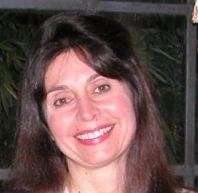Stanford Offers New Online Course In Stem Cell Therapies For Alzheimer’s, Other Diseases
Written by |
With recent developments in stem cell research opening up the enormous potential for advancing the field of regenerative medicine, researchers are exploring ways that stem cell therapeutics may prove able to treat and possibly even reverse effects of debilitating diseases such as Alzheimer’s, type 1 diabetes and muscular dystrophy.
Professionals working in stem cell research can now learn about research and breakthroughs in the field pioneered at Stanford University through a new Stanford professional education course — Stem Cell Therapeutics — which is being offered entirely online. The course is designed to advance scientific understanding of cell-based therapies and how they may be developed and delivered.
Stem cells provide enormous potential for the field of regenerative medicine due to their ability to become any type of cell — brain, blood, heart, bones, skin, muscles, etc. — offering hope for more effective treatments for Alzheimer’s and other degenerative diseases or perhaps even reversal of disease processes. The Stanford Institute for Stem Cell Biology and Regenerative Medicine maintains that the future of medicine lies in understanding how the body creates itself out of a single cell and the mechanisms by which it renews itself throughout life, and when that goal is achieved, we will be able to replace damaged tissues and help the body regenerate itself, potentially curing or easing the suffering of those afflicted by disorders like Alzheimers, Parkinsons, heart disease, diabetes, spinal cord injury and cancer.
Completing this elective course in the Stanford Genetics and Genomics Certificate program will advance a participant’s understanding of cell-based therapies and show what is being done today to develop and deliver them. Individuals taking the course will discover new ways to restore organ and tissue function for treatment of chronic diseases, genetic disorders and serious injuries, and get a glimpse inside the laboratory of medical researchers who are pioneering stem cell therapeutics. A sample course syllabus can be downloaded here:
https://geneticscertificate.stanford.edu/courses_pdf/XGEN204_Public%20Syllabus_0603.pdf
Michele Calos, Professor of Genetics in the School of Medicine at Stanford, leads a team of course instructors. Work in Professor Calos’ labis focused on advancing the science and clinical application of stem cell therapy using sequence-specific integration systems. “Our dream is to develop therapies in the lab that are translatable to clinical use,” she  says. “Some of the laboratory strategies we will share with course participants have a real chance to evolve into clinical trials to treat some of the worst diseases of humankind.”
says. “Some of the laboratory strategies we will share with course participants have a real chance to evolve into clinical trials to treat some of the worst diseases of humankind.”
Available online from anywhere in the world, the course is a newly added elective to the Stanford Genetics and Genomics Certificate. Faculty from Stanford’s world-leading School of Medicine in the fields of genetics, genomics and personalized medicine, teach in the online program while guest lecturers provide industry insight.
For example, the Stanford Alzheimer’s Translational Research Center’s mission is to support faculty members pursuing translational research directly involving Alzheimer’s patients or laboratory models of Alzheimer’s and related dementias. The center serves as a robust platform by which to leverage and focus the latest and best research in neuroscience and other fields emerging at Stanford and other top institutions. Researchers at the center are among the world leaders in elucidating the underlying mechanisms of Alzheimer’s disease, developing new methods to accurately predict and diagnose it, creating new treatments, and conducting clinical trials for new treatment regimens. Since 1981, the Stanford/VA Alzheimer’s Research Center has been conducting leading research into the causes and treatment of Alzheimer’s disease (AD) — a progressive disorder of the brain that affects approximately thirty five million people worldwide. One in eight people over age 65 is affected by Alzheimer’s, and more than 5.3 million Americans are living with the disease today, and unhappily the current cure rate for Alzheimer’s is 0 percent, with hoped-for development of stem cell based therapy currently the brightest hope for an effective treatment.
A Stanford release notes that the dramatic expansion and acceleration of genetics and genomics research provides tremendous opportunity for professionals in the science-medical space, and that this certificate program and new online stem cell course are well-suited to increasing the knowledge of medical sales representatives, R&D managers and new product teams, and technology and VC leaders, as well as medical practitioners.
Stem Cell Therapeutics will introduce participants to developing methods of restoring organ and tissue function for the treatment of chronic diseases, genetic disorders and serious injuries. Participants will learn how to identify different sources of stem cells, the key components of gene editing, and practices for designing and generating human iPS cells.
Other online genetics course topics in the Stanford Genetics and Genomics Certificate program include:
• gene therapy
• agricultural biotechnology
• genetic engineering
• personalized medicine
• understanding cancer
Acceptance into the online certificate program is ongoing and participants may apply through the Stanford Center for Professional Development. Details can be found at https://geneticscertificate.stanford.edu
The Stanford Center for Professional Development makes it possible for professionals to enroll in Stanford University courses and programs while they maintain their careers. Courses and programs from the School of Engineering and related Stanford departments are delivered online, at Stanford, at company work sites and international locations — providing a global community of learners with flexibility and convenience, and enabling them to apply their education to their work.
Video:
https://www.youtube.com/watch?v=5XmXPFJcp_g
RELATED LINKS
https://geneticscertificate.stanford.edu
Sources:
Stanford University
Stanford Center for Professional Development
Stanford/VA Alzheimer’s Research Center
Stanford Institute for Stem Cell Biology and Regenerative Medicine
Image Credits:
Stanford University





